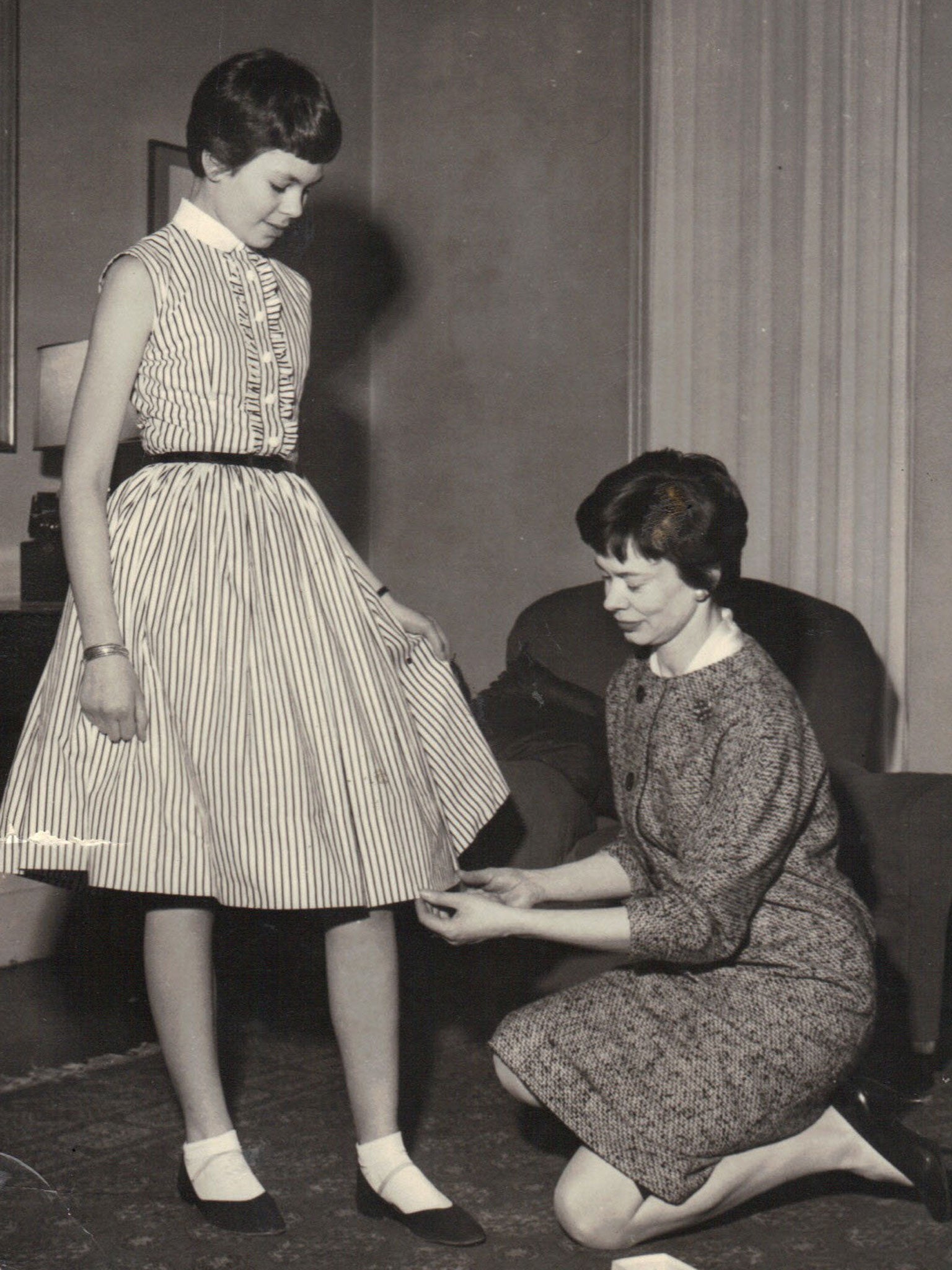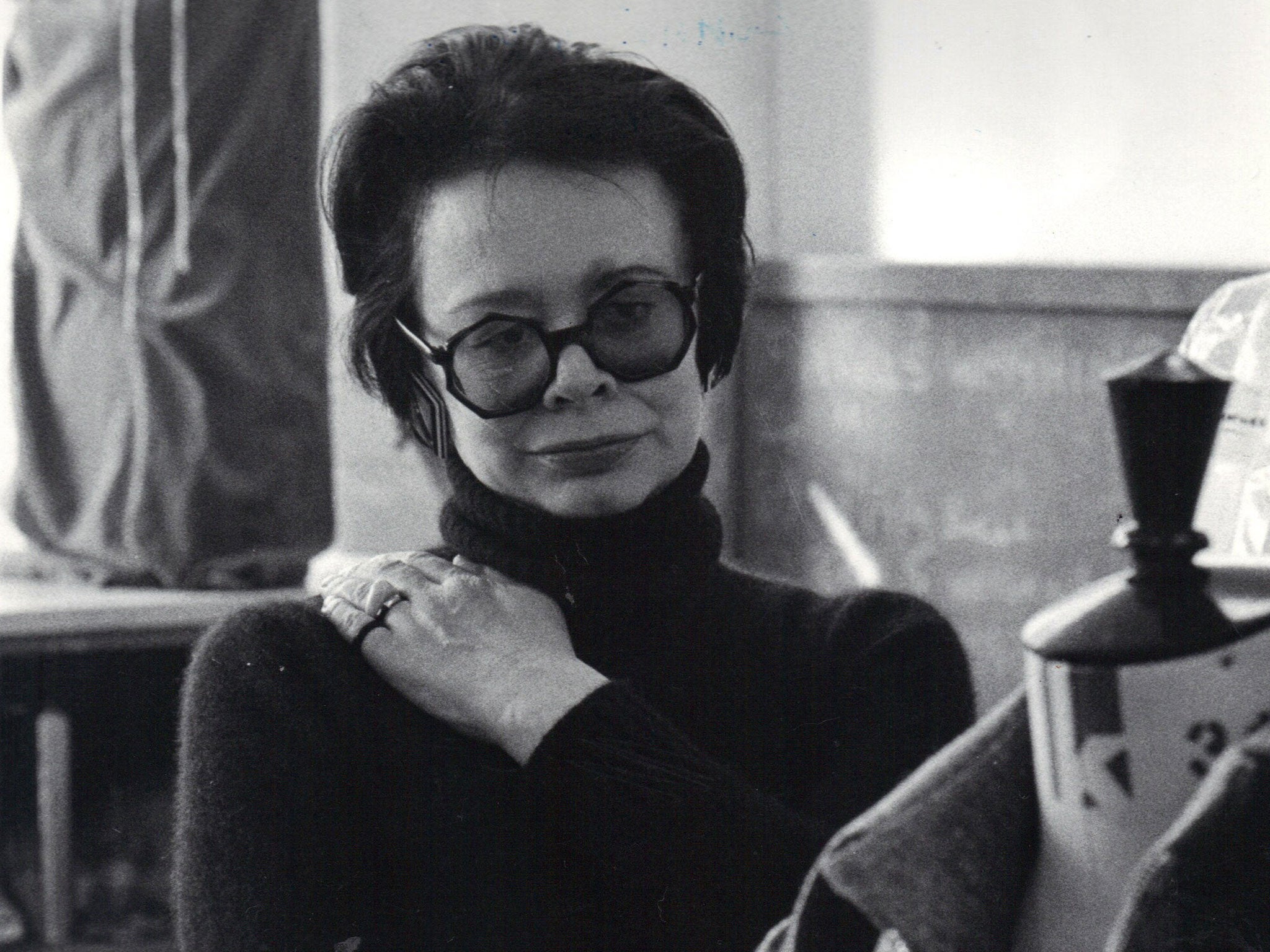Assisted Dying Bill: I want to be able to decide about my own death - I want to have control of my life
This week the Assisted Dying Bill is debated in the Lords. Virginia Ironside, who has already made plans for her own self-deliverance, argues that it's time we allowed people a humane, compassionate death

My mother had always made me promise I would make sure that, if she was terminally ill, she would be snuffed out "like a candle". She didn't want to remain guttering till the end. But even in the good old days, when doctors were far more free with the morphine jabs, it was still difficult to get her wishes fulfilled.
After another setback in her treatment – my mother had cancer and was talking gibberish most of the time, except when she had a blood transfusion when she'd beg me to get the doctors to end it all – the doctor in charge called me into his consulting room. "Nothing to worry about!" he said breezily. "We'll have her up and going to the opera and playing tennis in no time at all!"
As any idea of exercise was anathema to my mother, who had twice tried to commit suicide during the previous few years, and since going to the opera was her idea of hell, I broke down. "She doesn't want to live!" I said. It was to no avail. It was an agonising week later, that a nurse took me aside. "Your mother has no hope," she said bluntly. "I'm a Roman Catholic, but I beg you to ask the doctors to do something. She is in terrific pain, physical and mental."
So at that point I begged with a vengeance, and soon a morphine shot was administered and she died that night. "Thank you, darling," my mother said, when I told her what I'd arranged.
Shortly afterwards, an elderly friend of mine who'd been in pain for a couple of years, asked if I could buy her a coffee grinder to grind up her pills, and some coloured felt pens so she could write a visible note on her door, warning people to call the police before entering. But because of the law I was obliged to tell her that I couldn't fulfil her requests. She should try asking someone else, but not tell them what she wanted the purchases for.
Recently, another elderly friend of mine, who longed to die and refused food, was woken every two hours during her final weeks by a nurse practically force-feeding her, despite the pleadings of her daughters.
There is an extraordinarily skewed view that life is worth living at all costs. The truth is that life is only worth living if it's worth living. We are compassionate enough to our animals, putting them out of their misery if they're suffering, but when it comes to humans, who actually have minds of their own and can often tell us what they want, our hands are tied.

Recently, I was talking of my endorsement of euthanasia at a forum about old people. The rest of the panel (although privately I knew some agreed with me) seemed nervous about coming to support the idea fully in public. And members of the audience were outraged. "I know a 95-year-old who, even though bedridden, a widower and unable to see, is living a full life!" said one, imagining that I would like to see the happy old gent bumped off, the last thing on my mind. But afterwards, two young people came up. "We agree with you," they said. "Our mother is a slave to our grandfather, who lives with us. He used to be a lovely person, kind and fun, but now he's incontinent, subject to rages, doesn't know who any of us are, but when he had pneumonia, instead of letting him go, they filled him with antibiotics to face another year of hell."
I want to be able to decide about my own death because I want to have control of my life. My poor son has been given so many living wills by me that I'm surprised he doesn't pop over and bump me off straight away. The last thing I want is for my hard-earned money to be squandered on nursing a distorted and unhappy version of myself for years when it could help my grandchildren. There is a lot of talk of giving dying people "dignity" but, frankly, where's the dignity in having your bottom wiped by a stranger, even a kindly one? Or, come to that, even your best beloved?
One problem is that the laws on the Right to Die are made by people who haven't reached old age. They don't know, yet, that as we get older, many of us find that not only do we fear death less than when we were younger, but that we might even welcome it. Four Britons have gone to Dignitas recently, not because they have a terminal painful illness but simply because they don't find life today worth living any more. They have, quite simply, come to the end of the line. In most cases, their surnames have not been disclosed. We simply know them as Anne, who suffered from angina, chronic bronchitis and osteoarthritis; Neil, who had multiple sclerosis; and Monty, who had macular degeneration and peripheral neuritis. But the right-to-die campaigner Nan Maitland, who was crippled with severe osteoarthritis, had no such qualms. For some, like her, it can be an awful struggle trying to continue being a Perky Pensioner when you're over 80. Suddenly, death starts to look less like an enemy and more of a friend.
There's a lot of talk about slippery slopes. But why are slopes always slippery? A slope, yes, but "slippery" implies something out of control, a fear that, if we allow, under strict regulations with the endorsement of two doctors, the possibility that we might be able to have our lives ended in a compassionate manner by a professional, soon everyone over 60 will be bunged into gas chambers. Nonsense.

The other argument against self-deliverance is that old or sick people will be pressured by their loved ones to agree to be got rid of. Not only is this view extremely insulting to most old people, who can easily withstand family pressure – on the whole we're a curmudgeonly bunch – but it's also insulting to the doctors who would have to check that the people who wanted to die were totally convinced of their views and weren't being coerced.
There is another problem, less spoken of. Unless loved ones can really detach themselves from their own feelings and allow the person who wants to die to do exactly what they want, they find it very difficult to go along with the idea of endorsing a loved one's right to die. It feels unloving and certainly bad-mannered to say: "Okay, if you really want to die, fine." Whatever they may feel privately, they may feel compelled to resist the views of a parent or sibling or friend. Similarly, saying that you want to die is tricky. The sub-text always appears to be: "However much I love you and you love me, however good and kind you are to me, you can't give me enough to overcome my desire not to exist." And that belief, if it's articulated, can seem terribly unkind to loved ones.
Some people say "But if you want to die, why not do it yourself? Why involve anyone else?" The reason is that when it comes to my wanting to die I may not be capable, physically or mentally, of doing it myself. But even if I were, I'd hate to get the dose wrong or botch up the attempt, resulting in a life perhaps even worse than the one I had originally, and becoming more, rather than less, of a burden. I want someone to tell me what is the right dose, what's a completely fool-proof method. Not being a doctor, I simply don't know this myself.
Often, when I've explained my views to friends, they say: "Ah, but when it comes to it, you might change your mind! What would you do then?" Of course I might. And if I do, I will say so. But I hope I don't change my mind. The survival instinct is, after all, only another instinct. It has no reason to it. It doesn't have to always be listened to. We suppress our murderous instincts and our greedy instincts and our sexual instincts when they're inappropriate. So I think – I hope – that having made a living will when I was rational, I would be willing to suppress my survival instinct if it kicked in at the end of my life when I'm sick, unhappy, in pain, confused, a burden and unable to cope for myself.
Virginia Ironside is a contributor to 'I'll See Myself Out, Thank You' edited by Colin Brewer and Michael Irwin (Skyscraper, £10.99), out now
A law that gives some hope to the desperate
The House of Lords is presently discussing Lord Falconer's "Assisted Dying Bill" – to permit a doctor to provide a lethal medication for a "terminally ill person" (ie, someone who is expected to die within six months) to self-administer. However, as more than 100 amendments are still to be considered, this Bill cannot become law before the next general election.
In the new Parliament at Westminster, it is expected, after May, that the next attempt to change the law will be as a Private Member's Bill in the House of Commons.
In the Scottish Parliament, a draft "Assisted Suicide (Scotland) Bill" is currently being discussed in its Health Committee.
This would allow a doctor to give a lethal drug to either a terminally ill individual or someone who has a progressive, life-shortening illness. However, it is unlikely to become law this year.
Under present DPP guidelines, in existence since 2010, it is most unlikely, in England and Wales, that a relative or close friend, "wholly motivated by compassion", would be prosecuted for assisting in the suicide of a competent individual who has "a terminal illness, a severe and incurable physical disability, or a severe degenerative physical condition".
Last October, the DPP also stated that a doctor or nurse who helps a competent, terminally ill or severely disabled person to take their own life is less likely now to face criminal charges if they are not directly involved in that individual's care.
Join our commenting forum
Join thought-provoking conversations, follow other Independent readers and see their replies
Comments